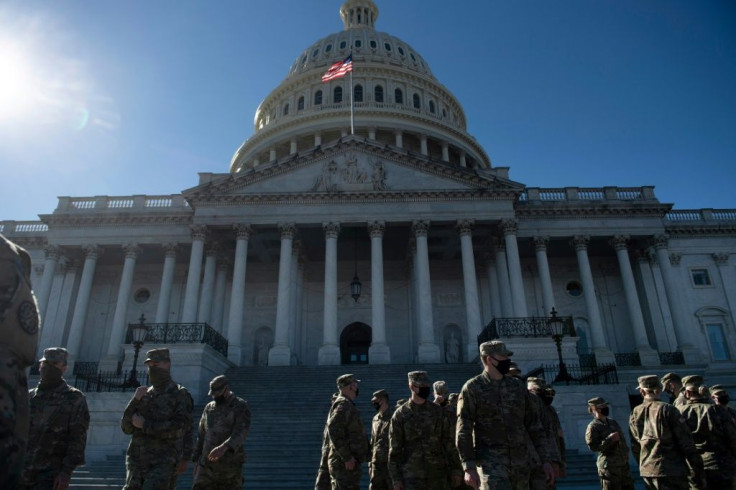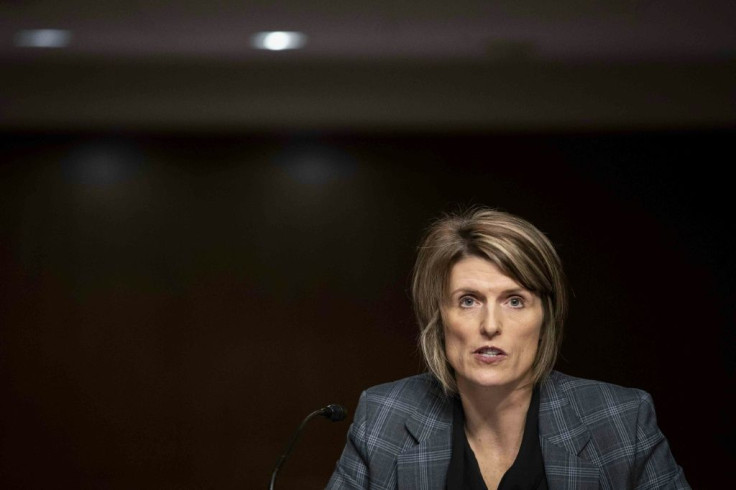US Police Warn Of New Militant Plot To 'Breach' Capitol
US police said they have bolstered security in Washington after intelligence uncovered a possible plot to "breach the Capitol" on Thursday, when some conspiracy-believing supporters of Donald Trump predict he will be inaugurated for another presidential term.
The threat comes nearly two months after Trump supporters, including QAnon followers, stormed the Capitol building and laid siege to Congress, in an attack that left five people dead and shook the citadel of American democracy.
Some followers of the QAnon conspiracy theory believe Trump was cheated out of a second term and that Thursday will mark his victorious return to power to confront a secret global cabal of satanist liberals.
"We have obtained intelligence that shows a possible plot to breach the Capitol by an identified militia group on Thursday, March 4," the US Capitol Police said in a statement.
"We have already made significant security upgrades to include establishing a physical structure and increasing manpower to ensure the protection of Congress, the public and our police officers," the police force said, adding it is "taking the intelligence seriously."

Police have pointed to online chatter suggesting some in the QAnon movement see Thursday as a Trump inauguration day. Most US presidents were inaugurated on March 4 until 1933, when the date was changed to January 20.
What remained unclear is whether the threat remains mere online talk by extremists, or will be converted into action with groups heading to Washington to stir up trouble.
On Monday the acting US House Sergeant at Arms, Timothy Blodgett, reportedly sent a memo to members of Congress advising them of potential protests surrounding March 4.

He said in the memo, however, that the significance of the date "has reportedly declined among various groups in recent days" and that violent protests are no longer anticipated.
But the Federal Bureau of Investigation and the Department of Homeland Security saw the threat as serious enough to issue a joint bulletin Tuesday night warning of potential unrest on March 4 and March 6, DHS senior official Melissa Smislova testified to Congress on Wednesday.
Several conspiracy theorists had anticipated that the January 6 riot would block the ceremonial certification of Joe Biden as winner of the presidential election, and pave the way for Trump to remain in power.
When that failed, QAnon followers -- disseminating falsehoods and misinformation -- began discussing March 4 as the next opportunity for Trump's return.
There is zero evidence to suggest this will happen.
Nevertheless, one business entity in Washington appears keen on capitalizing on the misinformation: the Trump International Hotel.
Rates for rooms at the Trump-owned property are listed on its website at $1,331 for Wednesday and Thursday night each, nearly triple the rate of $476 posted for each day from Saturday through the end of March.
The National Guard, which was deployed to the Capitol hours after the riot, continues to maintain a presence on the grounds as part of enhanced security.
The FBI says cases of domestic extremism have increased substantially in recent years, particularly from groups or individuals espousing white supremacy.
"We expect racially or ethnically motivated violent extremists, anti-government or anti-authority violent extremists, and other domestic violent extremists citing partisan political grievances will very likely pose the greatest domestic terrorism threats in 2021 and likely into 2022," FBI assistant director of counterterrorism Jill Sanborn testified Wednesday.
© Copyright AFP {{Year}}. All rights reserved.





















